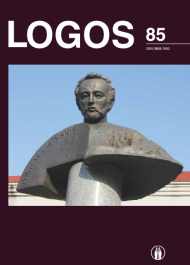Islamo Teisės Samprata Formavimosi Laikotarpiu Ir XXI A.: Tradicijos Ir Pokyčio Sintezė
Islamic Legal Concept in the Formative Period and XXI Century: Synthesis between Tradition and Change
Author(s): Juozas ValčiukasSubject(s): History of Law, Social Philosophy, Islam studies, Philosophy of Religion, Philosophy of Law
Published by: Visuomeninė organizacija »LOGOS«
Keywords: Islamic law; tradition; legal source; ijtihad; taqlid;
Summary/Abstract: Western and non-western legal systems have always experienced a clash of traditional thought and the intention to change or to be changed. Tradition and development or its synthesis in Islamic law through historical and modern points of view are of particular interest in our article. Thus, our main concern is divided into the formative period of Islamic law and to the discussion of the actual concept of Islamic law. The bedrock of Islamic law in the formative period was both divine sources and human legal reasoning. In other words, from the beginning the law enshrined in the primary sources was associated with legal innovations that proved to be instrumental to the fundamental transformations in Islamic legal tradition. The cut-off point between the development of Islamic law and its traditional boundaries was just after the final emergence of traditional legal schools. The relation between tradition and development of Islamic law in modern time is analyzed through at least two legal concepts. The newly formulated theory of abrogation as a method to read the letter of Islamic law could be treated as one of the ways to adapt Islamic law to the new conditions. Also, general principles enshrined in the spirit of Islamic law give rise to specific rules that were and are of similar meaning with Western legal principles. At the end of the article our attention is on these two concepts.
Journal: LOGOS - A Journal of Religion, Philosophy, Comparative Cultural Studies and Art
- Issue Year: 2015
- Issue No: 85
- Page Range: 145-155
- Page Count: 11
- Language: Lithuanian

